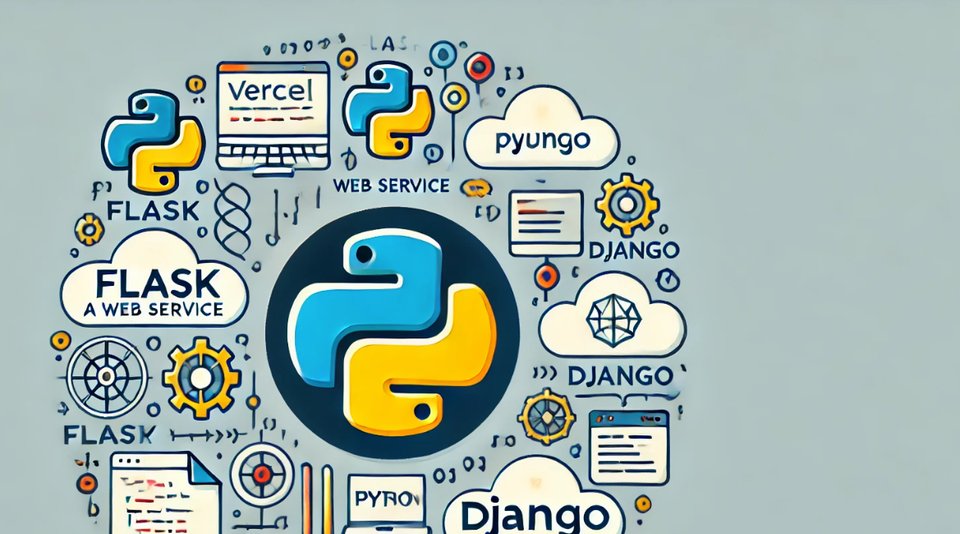How to Deploy Flask and Django Apps on Vercel?
Table of Content
Deploying Flask and Django applications on Vercel is practical and can be done with relative ease, though there are some considerations to keep in mind for optimal performance and compatibility.
Flask on Vercel
Benefits:
- Serverless Functions: Vercel allows you to run Flask apps as serverless functions, which can help scale your application automatically based on demand.
- Ease of Setup: The deployment process is straightforward, involving creating a simple
vercel.jsonconfiguration file and setting up routes. - Free Tier: Vercel’s free tier offers generous resources, including 100GB of bandwidth per month, making it suitable for small to medium-sized projects.
Steps to Deploy:
- Create Essential Files: Ensure your project has
app.py,requirements.txt, andvercel.json. - Deploy: Push your code to a GitHub repository, connect it to Vercel, and deploy.
Configuration: Your vercel.json might look like this:
{
"builds": [
{ "src": "app.py", "use": "@vercel/python" }
],
"routes": [
{ "src": "/(.*)", "dest": "app.py" }
]
}
For a detailed guide, see the DEV Community tutorial and Genelify.
Django on Vercel
Benefits:
- Automatic SSL: Vercel automatically handles SSL certificates, providing HTTPS for your application.
- Global CDN: Your app benefits from Vercel’s globally distributed CDN, improving load times.
- Serverless Functions: Similar to Flask, Django apps can be deployed using serverless functions, aiding scalability.
Steps to Deploy:
- Prepare Project: Ensure your project includes
wsgi.py,requirements.txt, and avercel.jsonfile. - Deploy: Connect your GitHub repository to Vercel and deploy the project.
Configuration: Example vercel.json for Django:
{
"version": 2,
"builds": [
{ "src": "project/wsgi.py", "use": "@vercel/python", "config": { "maxLambdaSize": "15mb", "runtime": "python3.9" } }
],
"routes": [
{ "src": "/static/(.*)", "dest": "/static/$1" },
{ "src": "/(.*)", "dest": "project/wsgi.py" }
]
}
For a detailed guide, refer to the DEV Community tutorial and Genelify.
Considerations:
- Performance: For both Flask and Django, ensure that your application and its dependencies are optimized for a serverless environment.
- Database: For Django, using a managed database like PostgreSQL instead of SQLite is recommended for production.
Deploying Flask and Django apps on Vercel is practical and leverages Vercel’s powerful serverless infrastructure and global CDN to provide a robust, scalable solution.










